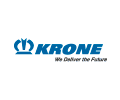The role of fleet management is a multifaceted one. Effective planning will always allow you to optimise your delivery, take full advantage of your vehicles, and ensure that every driver provides maximum output. Every business requires a solid plan to implement a practical haulage efficiency. And there are a few guiding principles to address so you can measure your improvements. What are these?

The Quality of the Vehicle
The most important thing for an efficient haulage company is to have high quality vehicles with efficient maintenance schedules and ensuring that every vehicle is in 100% percent peak condition. This could mean working with companies like https://www.ozzytyres.com.au/ to have high quality tyres, but also ensuring that the vehicles themselves undertake regular servicing. The vehicle quality is going to make a big difference. It’s important to invest in quality upfront rather than cutting corners by opting for cheaper methods of delivery.
Review and Establish Measurable KPIs
Of course, for a sense of improvement to be possible, you need to understand the business goals. Each goal will be set out in a series of key performance indicators attached to each team, employee, and function. Its KPI should be understood and measurable. It should provide a key component of your planning strategy, so you can adjust and review the KPIs based on the evolving needs of the company.
A Holistic Approach to Operational Efficiency
It’s all about the supply chain, and everybody is seeing the impact of this in the current climate. The benchmark for any improvement should be how it impacts the supply chain. The goal should be to choose an efficient, yet cost-effective solution to a problem. Any strategy should be flexible, and so procedures can be adapted to ever-evolving circumstances. This is why it’s so important to be holistic in our attitudes because we can be more dynamic and establish more practical improvements.
Improving Environmental Sustainability
It’s vital to be mindful of the impacts of what haulage and logistics can do to the environment, such as excessive fuel use and emissions. You can look at https://www.crosscountrycarriers.com/ for examples of sustainability in the haulage industry and you may choose to reorganise delivery routes or upgrade your fleet or introduce new guidelines. Sustainability should form part of your strategic thinking, and as a handy by-product, it will save you money.
Improving Customer Service
Your transport network is a key component of your service delivery strategy. Every chain should be assessed in terms of its impact on your ability to deliver stellar customer service. A carefully managed transport plan will help you deliver improved services while also reducing costs. Customer service should be viewed as one of the most important components, even if you do not provide customer service in the traditional sense.
It’s vital to ensure that you cover a number of these components for a very practical and efficient haulage business, but you shouldn’t stop here. The importance of developing your approach will reap dividends in the long run.


.gif?rand=6560)








